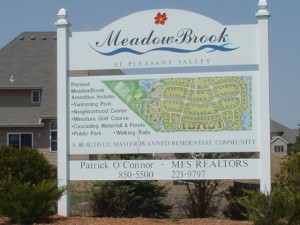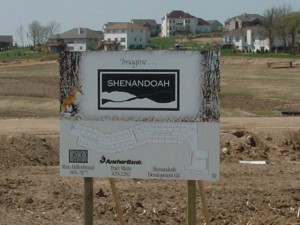
Having a poli-sci BA and an MS in geography means that I geek out over good land use policy analysis (in case you hadn’t clued into that already!).
Below is one of the best analyses I’ve ever seen with regard to Dane County’s rural land use policies. Stefi & Arnold Harris of the Western Dane County Coalition for Smart Growth and Environment are truly fighting the good fight out there.
3-15-2010
to: Dane County town boards
from: Stefi Harris, Western Dane Coalition for Smart Growth and Environment
re: DCTA ineffectiveness protecting town lands from annexationAs a rural resident of the Town of Cross Plains in western Dane County for 34 years, I have witnessed the increasing disappearance of farmlands and other open spaces of the towns in our county as they have been incrementally swept into the encroaching black holes of annexation by their neighboring cities and villages. All these annexations have been for development largely denied to the towns by countywide comprehensive planning. Mostly of them were instigated and conducted not because they made any sense from the planning point of view but to feed a class of land speculators and developers who buy up these town lands at farmland prices in order to enrich themselves with high-priced lots for urban sprawl.
Presently, there is only one venue in Dane County where towns might hope to affect the outcomes of city/village grabs of their lands and tax bases. That venue is CARPC, the appointed body to which all Dane County cities and villages must come in order to get recommendations to the WI-DNR for approval of their sewer service area extensions. Without those recommendations they can do only limited development on annexed town lands.
The main culprits in this destructive development are the cities, villages, land speculators and developers. However having monitored actions of the Capital Area Regional Planning Commission (CARPC) since mid 2008, I now understand that the Dane County Towns Association (DCTA), either through willfulness or bad judgment, is equally responsible for enabling CARPC to act as little more than a well-oiled machine for converting town farmlands and other open spaces to urban sprawl after these lands have been annexed by the cities and villages. And here it is how that happens.
CARPC has 13 members, appointed as follows:
— Dane County Towns Association (DCTA), three members;
— Dane County Executive, three members;
— City of Madison, four members;
— Dane County Cities and Villages Association (DCCVA), three members.CARPC’s rules require a majority vote of eight of the 13 members to pass a positive recommendation for an urban service area (USA) extension on to WI-DNR. The pro-development forces have overcome that hurdle by organizing a CARPC voting bloc which includes all three DCCVA appointees, at least three of the four Madison appointees, and at least one of the three DCTA appointees, but frequently all three.
DCTA and its appointees, all of whom have been elected Dane County town officials, have a unique opportunity to counter the cities/villages bloc and discourage future unjust annexations of towns’ lands by making them through its CARPC actions unprofitable for developers. In order to accomplish this, they would have to form a voting bloc with the appointees of the Dane County Executive and with one vote that usually comes with Madison appointees.
However, DCTA historically and presently, almost always wastes its limited political capital opposing the County Board of Supervisors and the Dane County Executive in any and all land use controls. Mostly, this is an extension of the political orientation of the DCTA leadership. They act as though it were the Dane County government rather than the cities and villages that has been annexing their lands and exercising frequently unfair extra-territorial jurisdiction against their membership – the Dane County towns – rather than the cities and villages with whom their CARPC appointees typically walk in political lockstep.
From Mar 27, 2008 to the present, CARPC has reviewed as many as 20 service area extension requests. Some of these represented limited service areas (LSAs) of minor acreage. Others are cases in which there were specific agreements between a town and a neighboring city or village, such as the recent City of Middleton-Town of Westport CUSA review and approval by CARPC. And there was a single case where CARPC actually turned down a request by the Village of Mazomanie to extend the sewer lines on lands taken from the Town of Mazomanie without as much as a courtesy call.
But over 2/3 of the land area awarded to urban expansion during the same period or over 2070.7 acres, involved cases where CARPC approval was given even though towns had no say in annexations preceding these approvals. In each such occurrence, CARPC more or less rubber-stamped the municipal proposals. In all these cases, DCTA’s appointees mostly joined forces with the DCCVA and City of Madison appointees in a solid voting bloc.
The rubber-stamp approvals of the Madison, DCCVA and DCTA appointees are further reinforced by CARPC staff, led by an environmental engineer who routinely uses his position to lead board discussions to favor approvals of the urban service area requests, despite numerous clear violations of the Wisconsin NR 121 regulations dealing with water quality issues, and even has been seen to interrupt commissioner discussions in order to sway one or more dissident commission members to vote approval of his favored projects. WDC/SGE has researched and brought to the attention of CARPC, its staff and its commissioners technical information about many water quality-related proposal violations, to which little attention has been paid.
Moreover, CARPC rules allow broad opportunities for the applicant cities and villages, and along with them, their pet land speculators and developers, to testify at length, including use of extensive PowerPoint presentations. In contrast, opponents of these developments are permitted only three minutes per person to speak, with no such presentations. So each such meeting and all CARPC deliberative procedures, operate like a carefully coordinated card game in which the deck is stacked against the interests of the towns themselves, smart growth planning of Dane County, and Wisconsin’s environmental protection legislation.
A typical example of CARPC decision-making was at the March 11, 2010 CARPC meeting, concerning the City of Fitchburg Central Urban Service Area (CUSA) amendment request for 397.7 acres. At that meeting, DCTA appointee Ed Minihan, who is also chairman of the Town of Dunn, raised the objection to Fitchburg’s request based on two significant unanswered concern that directly affect his town. Those concerns involved unresolved issues over increased flooding in the Town of Dunn and degradation of South Waubesa Marsh, both due to the City of Fitchburg proposed urban service extension. This marsh is known as both a unique and an outstanding wetland area. Increased resale property values in the Town of Dunn can be in part credited to the proximity of pristine South Waubesa Marsh natural area. The town has also submitted its letter of objection over Fitchburg’s proposal to CARPC. Commissioner Minihan argued his objections clearly and concisely during Thursday’s CARPC deliberation. But what followed might surprise you. His two fellow DCTA appointees, commissioners Phillip Van Kampen and Susan Studz, ignored his comments, sided with the cities and villages, and voted against the Town of Dunn’s objection. Their votes were particularly hard to swallow because these two members never responded to Minihan’s objections and provided no coherent water quality or other reasons for going against the Town of Dunn. They gave him no backing whatsoever, despite that they were appointed to CARPC to represent the interests of Dane County towns.
Mr Van Kampen has been on CARPC for a long time and has had a fair track record until he was appointed chairman of CARPC at the March 11, 2010 meeting, replacing Jeff Miller, a DCCVA appointee. One must assume the cities and villages bloc of commissioners supported him as chairman because they assumed he would continue their status quo of the obvious CARPC bias in favor of awarding urban service area extensions at the expense of the towns from which the lands for these extensions have been grabbed.
Susan Studz is new to CARPC. She was recently appointed by DCTA to take the place of the late Harold Krantz, a town leader of great experience. To Krantz, by contrast, the interests of the towns always came first in any CARPC discussion or vote. He frequently voted against city/village proposals where town interests were not served.
If this type of mindless action of some of the DCTA appointees on CARPC continues, many of us who live in towns of this county fear what will happen to our towns when the land tracts that have been recently ripped out of their territories inevitably come to CARPC review.
Here, along the northern boundary of the Town of Cross Plains, the Village of Cross Plains in early 2009 annexed a large chunk of town’s territory through gerrymandering. It did that with no prior discussion with the town. The land in question is a recharge area for Garfoot Creek, a high quality trout stream, classified as an exceptional water resource. The village wants to convert this area into a dense suburban neighborhood. This process would inevitably degrade Garfoot Creek from the exceptional water resource with living, breeding trout, into an impaired waterway that could barely support a forage fishery. The town wanted to keep that area as farmland with low-density residential development under its 1 split per 35-acre rule. The town wanted to continue protecting the creek, because a healthy stream with quality fish is an attractant. Among other things it increases property values in an area where it flows.
Many of us in the town familiar with this recent hostile action of the DCTA appointees to CARPC, Van Kampen and Studz against the Town of Dunn are worried that if the case involving former Town of Cross Plains territory would come in front of CARPC now, that there would be no stopping of the Village of Cross Plains sewer service request and creek degradation and destruction. Furthermore, awarding the Village of Cross Plains a sewer extension through CARPC would only encourage the village to further encroach and take land from our town.
If DCTA or its CARPC commissioners ignore towns’ objections and are unwilling to lead by example and vote down cities and villages urban service area amendment requests whenever necessary, then how is anyone else on CARPC expected to help the towns? What is the sense of any town in Dane County using their taxpayer’s money to pay dues to DCTA if that organization is not sensitive to the overriding interests of their own members?
One of the unique sets of data that WDC/SGE has assembled are written surveys completed by residents of more than a dozen Dane County towns as part of their comprehensive planning projects during recent years. Notably, more than two-thirds of all rural residents surveyed clearly indicated that they want to keep the town lands rural and that they want to strongly limit development on the town farmlands and open spaces. This data directly contradicts the political assumptions of some who imagine that rural residents would support urban development all around the county, typically as enrichment schemes by a very small number of individuals. On issues such as these the majority of Dane County town residents is more in tune with the statewide Wisconsin Towns Association, who strongly favor smart growth planning and protection of town lands from unwanted development. The time has come for attitudinal adjustment of DCTA leadership. DCTA leadership should be made accountable for any hostile action by its CARPC appointees against towns whose cases come in front of that body.
Stefi Harris
Western Dane Coalition for Smart Growth and Environment
3427 County Rd P
Mt Horeb WI 53572
